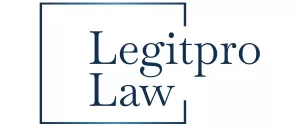- within Corporate/Commercial Law topic(s)
- with Senior Company Executives, HR and Finance and Tax Executives
- in United States
- with readers working within the Law Firm industries
- within Corporate/Commercial Law topic(s)
- with Finance and Tax Executives
- in United States
- with readers working within the Retail & Leisure and Law Firm industries
Introduction
On May 30, 2025, the Ministry of Corporate Affairs (MCA) released Notification No. G.S.R. 357(E), which brought forth the Companies (Accounts) Second Amendment Rules, 2025 ("2025 Rules"), revising the Companies (Accounts) Rules, 20141. Taken effect from on July 14, 2025, these modifications introduce substantial changes to the compliance framework governing financial statement submissions and the disclosures required in the Board's Report under the Companies Act, 2013. The 2025 Rules are designed to improve transparency, bolster corporate governance, and align with international best practices by mandating disclosures related to workplace ethics, implementing digitised filing systems, and enforcing stricter compliance obligations. This article offers a comprehensive analysis of the key amendments, their relevance, and the actions companies need to undertake to ensure compliance, specifically tailored for stakeholders navigating the dynamic corporate regulatory environment in India.
Overview
The 2025 Rules, established under the authority granted by Sections 128, 129, 133, 134, 135, 136, 137, and 138 in conjunction with Section 469 of the Companies Act, 2013, introduce a variety of modifications designed to enhance accountability and standardise corporate reporting practices. The main goals consist of increasing transparency in financial and compliance disclosures, ensuring compliance with labour laws, and optimising filing procedures through the use of digital technology. The regulations place a strong emphasis on structured data submissions and workplace-related disclosures, underscoring the Ministry of Corporate Affairs' commitment to social accountability and the welfare of employees.
Applicability
The Companies (Accounts) Second Amendment Rules, 2025, are applicable to all companies established under the Companies Act, 2013, comprising public, private, listed, and unlisted companies, unless explicitly exempted. Small companies and One Person Companies (OPCs) may advantage from limited compliance relaxations under Section 446B, yet they are still obligated to incorporate general compliance statements within their Board's Reports, especially for the POSH Act and the Maternity Benefit Act, even when certain provisions do not apply due to employee thresholds. Companies employing fewer than 10 employees are exempt from the requirement of forming an Internal Complaints Committee as mandated by the POSH Act, but they must still affirm compliance with its requirements. Likewise, companies with under 50 employees are not obligated to offer crèche facilities according to the Maternity Benefit Act, but they must still present a compliance statement in their Board's Report.
Enhanced gender compliance and workplace ethics disclosure
One of the most notable modifications brought about by the 2025 Rules is the broadening of disclosure obligations within the Board's Report, as required by Section 134 of the Companies Act, 2013. Companies must now furnish comprehensive information regarding their compliance with the Sexual Harassment of Women at Workplace (Prevention, Prohibition and Redressal) Act, 2013 (POSH Act). In particular, Rule 8(5)(x) of the Companies (Accounts) Rules, 2014, has been revised to require the inclusion of quantitative data in the Board's Report, such as the number of sexual harassment complaints received during the financial year, the number of complaints resolved, and the number of cases that remain unresolved beyond the 90-day timeframe specified by the POSH Act. This transition from a vague compliance statement to specific metrics highlights the Ministry of Corporate Affairs' aim to ensure prompt redressal and accountability in workplace grievance procedures.
Furthermore, a new provision, Rule 8(5)(xiii), has been added, mandating that companies include a formal declaration affirming their compliance with the Maternity Benefit Act, 1961. This declaration must confirm that the company adheres to regulations concerning maternity leave, crèche facilities, and other benefits, where applicable. For companies with fewer than 50 employees (the threshold for mandatory crèche facilities) or fewer than 10 employees (exempt from establishing an Internal Complaints Committee under the POSH Act), the Board's Report must still contain a compliance statement, which can affirm non-applicability if the employee count is below these thresholds. These disclosures are intended to promote a gender-sensitive corporate culture and bolster stakeholder confidence by providing investors, employees, and regulators with essential information regarding workplace ethics.
Digital submission of financial statement filings
The 2025 Rules implement substantial procedural modifications to the filing of financial statements, corresponding with the MCA's initiative towards digitisation and structured data reporting. Corporations are now mandated to exclusively file e-Forms AOC-1 (pertaining to subsidiaries' financial statements) and AOC-2 (related party transactions) through the digital interface of the MCA V3 portal. Furthermore, Form AOC-4, utilised for annual financial statement submissions, must include PDF attachments of the Board's Report, Auditor's Report (both standalone and, if applicable, consolidated), along with signed financial statements. These attachments are required to be digitally signed and formatted in compliance with Section 134 of the Companies Act, 2013.
To aid in the effective analysis by regulatory bodies, the 2025 Rules unveil three new e-Forms: Extract of the Board's Report, Extract of the Auditor's Report (Standalone), and Extract of the Auditor's Report (Consolidated). These extracts, which accompany primary forms like AOC-4, AOC-4 CFS, AOC-4 XBRL, AOC-4 NBFC (Ind AS), and AOC-4 CFS NBFC (Ind AS), are intended to capture essential data in a machine-readable format. This amendment bolsters the MCA's capacity to systematically analyse compliance data and guarantees that vital information is available to stakeholders in an organised way. Companies filing in XBRL format must also provide a signed copy of the financial statements in PDF format, in accordance with the Companies (Filing of Documents and Forms in Extensible Business Reporting Language) Amendment Rules, 2025, which came into effect on July 14, 2025.
Penalties
The 2025 rules highlight significant penalties for providing false statements or evidence in filings highlighted in sections 448 and 449 of the Companies Act, 2013. Section 448 outlines punishments for offering false statements, which may entail imprisonment for a duration of up to seven years and fines between INR 5 lakh and INR 25 lakh. Section 449 deals with false evidence, imposing similar penalties. Moreover, repeated breaches of the POSH Act can result in the revocation of business licenses or disqualification from government contracts, underscoring the necessity for accurate and timely compliance. These regulations reinforce the MCA's dedication to ensuring accountability and preventing non-compliance.
Practical implications
The 2025 Regulations carry significant implications for corporate governance and the trust of stakeholders. By requiring detailed disclosures regarding workplace ethics, the MCA indicates a transition towards enhanced social accountability, particularly in tackling gender-related concerns. The obligation to report unresolved sexual harassment cases after 90 days exerts pressure on organisations to address complaints swiftly, in line with the POSH Act's focus on prompt redress. Likewise, the compulsory declaration of maternity benefit compliance underscores the significance of employee welfare, especially for women in the workforce.
The shift towards digital filings and structured data submission demonstrates the MCA's dedication to modernising corporate compliance. The rollout of new e-Forms and the transition of existing forms to the MCA V3 portal simplifies the filing process and improves regulatory supervision. Nonetheless, these alterations also necessitate that companies upgrade their technological capabilities and ensure their teams are prepared to meet the new demands. The focus on machine-readable data formats will empower regulators to analyse compliance patterns more efficiently, potentially resulting in more stringent enforcement in the future.
Conclusion
The Companies (Accounts) Second Amendment Rules, 2025, which came into effect on July 14, 2025, mark a significant advancement in India's corporate governance framework. By requiring comprehensive disclosures regarding workplace ethics and adopting digital filing methods, these regulations set the stage for enhanced transparency, accountability, and social responsibility. Applicable to a diverse range of companies under the Companies Act, 2013, the amendments necessitate proactive actions to align internal processes, improve data integrity, and cultivate a culture of compliance. As businesses adjust to these new requirements, they have the chance to not only fulfil regulatory demands but also to establish confidence with stakeholders and aid in creating a more just corporate environment. By welcoming these reforms, companies can position themselves as leaders in ethical governance, promoting sustainable development in a progressively transparent regulatory landscape.
Footnote
1. MINISTRY OF CORPORATE AFFAIRS. (2025). Companies (Accounts) Second Amendment Rules, 2025.
The content of this article is intended to provide a general guide to the subject matter. Specialist advice should be sought about your specific circumstances.


